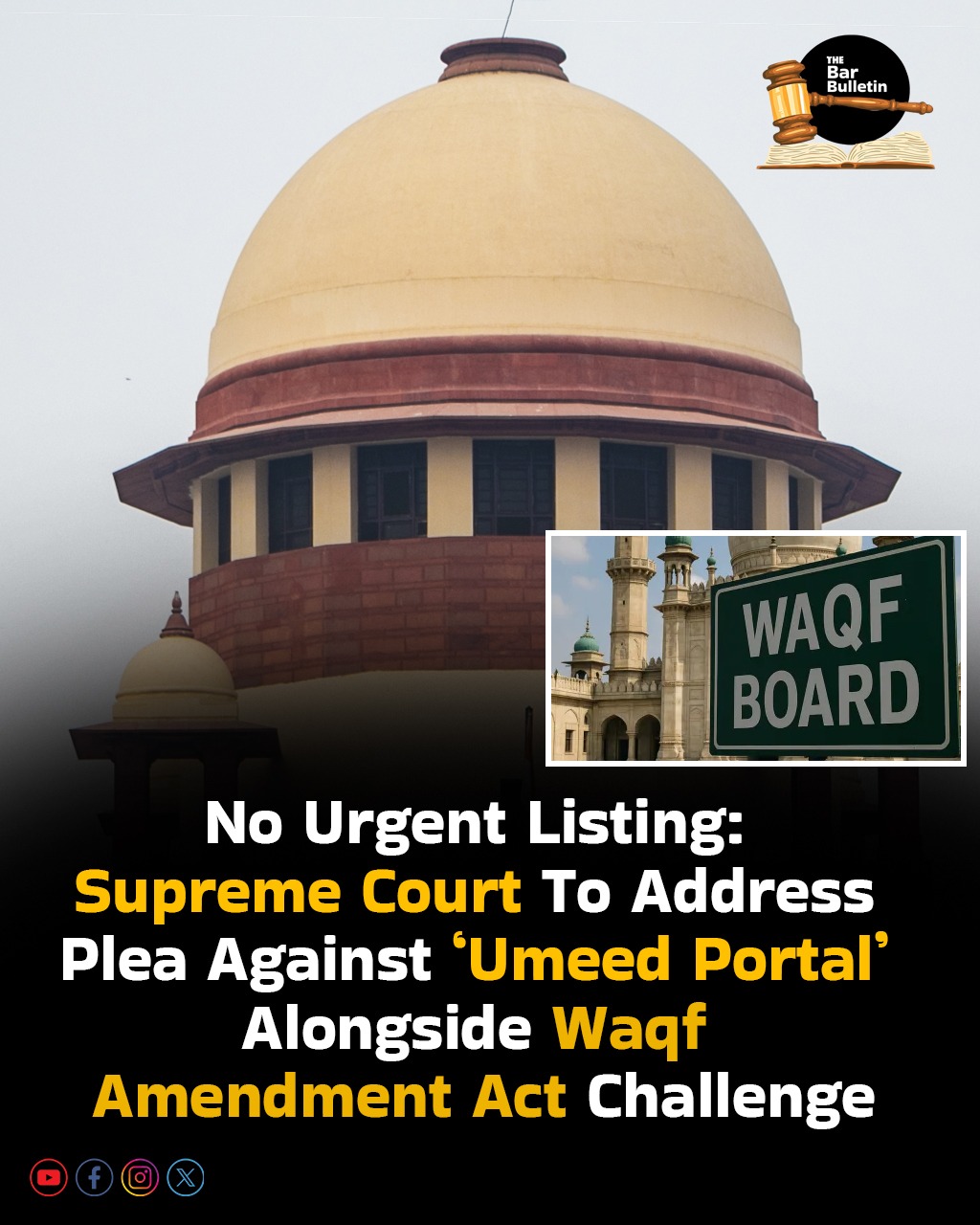The Supreme Court on 22 August 2025 declined to urgently list an application seeking the suspension of the Union Government’s newly launched ‘Umeed Portal’ for mandatory online registration of all waqfs, including ‘waqf by user’.
The Bench comprising Chief Justice B.R. Gavai and Justice Augustine George Masih told the counsel for petitioners that the matter regarding the mandatory registration requirements under the Umeed Portal, particularly concerns from user-based waqf representatives who argue that current requirements cannot be fulfilled, will be considered together with the main petitions challenging various provisions of the Waqf (Amendment) Act.
During the brief hearing, it was contended that the Umeed Portal’s registration framework presents practical difficulties for many existing waqfs, especially those established through long-term usage (‘waqf by user’) rather than through formal documentation. Petitioners, including the All India Muslim Personal Law Board (AIMPLB) and other stakeholders, argued that the new rules could result in genuine waqfs being unable to comply and risk being left unprotected or de-recognized.
The CJI noted, “You register it, nobody is refusing you from registration … we will be considering that part,” indicating that individuals and trusts should proceed with registration while the court’s final decision is awaited. The bench reminded parties that the judgment on the challenge to the Waqf (Amendment) Act, 2025 had already been reserved, and relevant issues, including those raised by the Umeed Portal’s implementation, would be addressed in the forthcoming order.
The Umeed Portal was recently launched by the Central Government to facilitate and standardize registration of Waqf properties nationwide. The current legal challenge encompasses a wide array of provisions introduced by the recent 2025 amendments, including the mandatory online registration, inclusion of non-Muslim members in Waqf governance bodies, restrictions on women’s representation, limitations relating to protected monuments and government properties, etc.
Many petitioners have voiced concern that these measures could have far-reaching impacts on existing waqf properties, administration, and the autonomy of their management. With several interventions and stakeholder appeals still active, the Supreme Court is set to deliver a crucial verdict that may shape the future of Waqf management and minority property rights across India.

